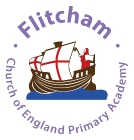Computing
Computing Curriculum Statement
Intent
In line with the 2014 National Curriculum for Computing, our aim is to provide a high-quality computing education which equips children to use computational thinking and creativity to understand and change the world. The curriculum will teach children key knowledge about how computers and computer systems work, and how they are designed and programmed. Learners will have the opportunity to gain an understanding of computational systems of all kinds, whether or not they include computers.
By the time they leave The Sandringham Federation, children will have gained key knowledge and skills in the three main areas of the computing curriculum: computer science (programming and understanding how digital systems work), information technology (using computer systems to store, retrieve and send information) and digital literacy (evaluating digital content and using technology safely and respectfully). The objectives within each strand support the development of learning across the key stages, ensuring a solid grounding for future learning and beyond.
Implementation
At The Sandringham Federation, computing is taught in weekly lessons. We aim for the children to develop depth in their knowledge and skills over the duration of each of their computing topics. Teachers use resources from ‘Teach Computing’ as a starting point for the planning of their computing lessons, which are often richly linked to engaging contexts in other subjects and topics. We have a computing suite and a class set of Chromebooks to ensure that all year groups have the opportunity to use a range of devices and programs for many purposes across the wider curriculum, as well as in discrete computing lessons. Employing cross-curricular links motivates pupils and supports them to make connections and remember the steps they have been taught.
The implementation of the curriculum also ensures a balanced coverage of computer science, information technology and digital literacy. The children will have experiences of all three strands in each year group, but the subject knowledge imparted becomes increasingly specific and in depth, with more complex skills being taught, thus ensuring that learning is built upon. For example, children in Key Stage 1 learn what algorithms are, which leads them to the design stage of programming in Key Stage 2, where they design, write and debug programs, explaining the thinking behind their algorithms.
Impact
Our approach to the curriculum results in a fun, engaging, and high-quality computing education. This can be seen through work the children have saved on the computer and evidence collated in floor books. Much of the subject-specific knowledge developed in our computing lessons equip pupils with experiences which will benefit them in secondary school, further education and future workplaces. From research methods, use of presentation and creative tools and critical thinking, computing at The Sandringham Federation gives children the building blocks that enable them to pursue a wide range of interests and vocations in the next stage of their lives.
Computing Threshold Concepts (Golden Threads) – In Computing, pupils should learn to;
- Code – This concept involves developing an understanding of instructions, logic and sequences. (Computer Science)
- Connect – This concept involves developing an understanding of how to safely connect with others. (Digital Literacy)
- Communicate – This concept involves using apps to communicate one’s ideas. (Information Technology)
- Collect – This concept involves developing an understanding of databases and their uses. (Information Technology/Computer Science)
Essential Characteristics – When taught Computing, pupils should develop;
- Competence in coding for a variety of practical and inventive purposes, including the application of ideas within other subjects.
- The ability to connect with others safely and respectfully, understanding the need to act within the law and with moral and ethical integrity.
- An understanding of the connected nature of devices.
- The ability to communicate ideas well by using applications and devices throughout the curriculum.
- The ability to collect, organise and manipulate data effectively.
Church Road, Flitcham
Norfolk PE31 6BU
